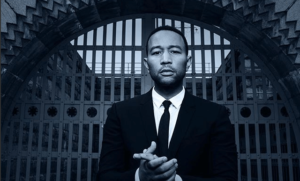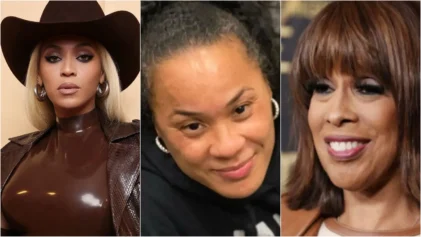
John Legend (Instagram)
John Legend will explore the history of Black Wall Street in a new series for WGN. It follows the network’s successful “Underground,” which chronicles a group of enslaved Africans in their escape from a Georgia plantation along the Underground Railroad. The singer’s Get Lifted Film Company produces the show, according to Atlanta Black Star.
Next, the company will explore another piece of lesser known Black history. Deadline reported the series – called “Black Wall Street” – scored an early development deal. Tika Sumpter, star of the upcoming movie “Southside With You,” will executive produce the show. The film – which follows Barack and Michelle Obama’s courtship – is also produced by Get Lifted.
“We’re so excited to continue to grow our relationship with WGN America,” Get Lifted’s Mike Jackson told the Hollywood news site. “Our experience working with them on ‘Underground’ has been fantastic. Additionally, we’re looking forward to working with our friend Tika Sumpter to help tell this incredible story that many people know nothing about.”
According to ABS, O.W. Gurley purposely created Black Wall Street in 1906. A wealthy African-American from Arkansas, Gurley moved to Tulsa, Oklahoma and bought 40 acres of land. He ensured only African-Americans bought plots there.
The name Black Wall Street refers to the Tulsa neighborhood called Greenwood. It housed one of the most successful Black economies in U.S. history. In 1910, the average income was around $500 daily. That money stayed in the Black community. It lasted almost a year before leaving, circulating anywhere from 36 to 100 times.
And in a time when the state only had two airports, six Black families owned their own airplane.
Disaster struck in 1921 when the Ku Klux Klan burned down most of the buildings in the Tulsa Race Riot. The community lost 600 businesses and an estimated 10,000 people wound up homeless. Surviving residents attempted to rebuild Greenwood in the years following the terror. But desegregation stopped Black Wall Street from returning to its former brilliance.


